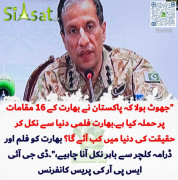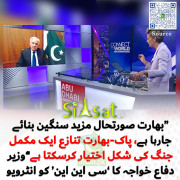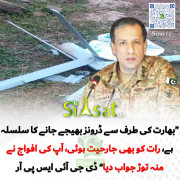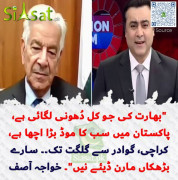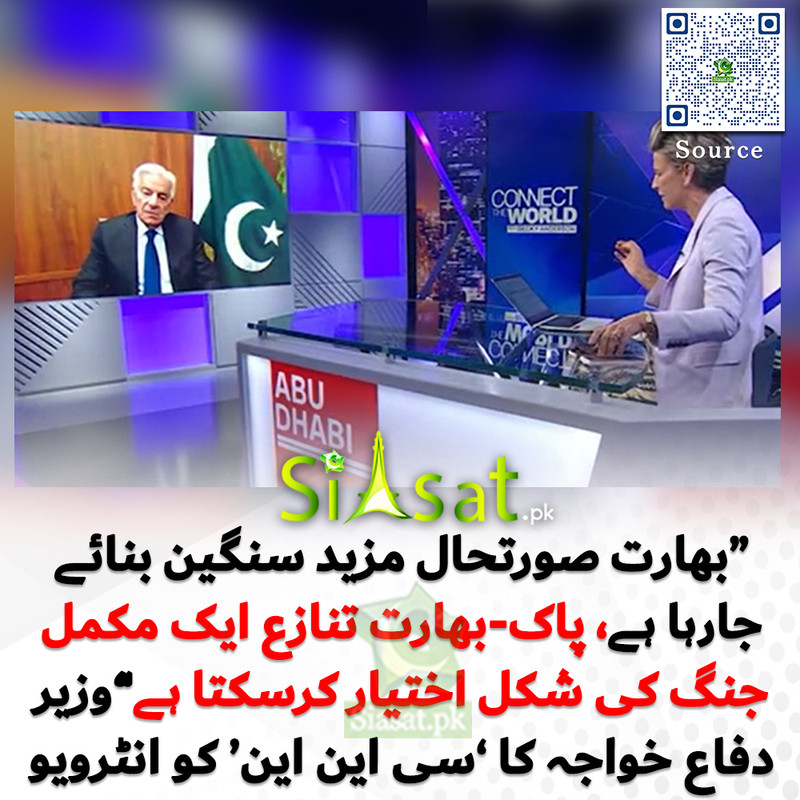Faheem Niaz
Senator (1k+ posts)

As expected, Pakistan has reopened the Nato supply routes that were closed following the US air attack on a Pakistani border post on Nov 26.
The attack lasted 90 minutes and resulted in the killing of 24 Pakistani soldiers. Following the incident the Pakistani security forces closed the supply routes for the coalition forces.
Almost from day one, the Pakistani authorities were never comfortable with the closure of the supply lines. At stake was the indispensability of the alliance with the US, continuation of inflow of money and a possible harsh retaliation that might destroy a fragile dispensation that relies on external props for its survival.
The outcome of all the contacts and consultations was never in doubt. But faced with mounting anger from the masses and resentment within the security forces the government was forced to take shelter under the umbrella of parliament.
The deliberations took time because the legislators assumed responsibility for a comprehensive review of the whole relationship with the US something which had very little to do with their functions and duties.
The centrepiece of recommendations that emerged was that the US will have to tender a formal apology and also give an assurance that such incidents will not be repeated.
In an election year in America, such an apology was never on the cards. This was conveyed umpteen times to Pakistani interlocutors in several meetings held on the subject of reopening of the routes.
It was, then, all about finding some mechanism that would be seen as fulfilment of the parliament resolution. In this pursuit of finding a way out of this impasse the Pakistanis were ahead of the Americans.
It appeared that more than the US it was the Pakistani establishment that wanted to have the routes reopened as quickly as possible.
The Americans knew of the fragility of the institutions in Pakistan and were also acutely aware of the fact that taking any firm position in defiance of US interests was not a Pakistani tradition. Expediency is the watchword in the Islamic Republic.
In order to create a justification for the opening of the routes, strange logic was advanced and wholly unsubstantiated assertions were made by the government.
For example, the idea was floated that Pakistan cannot risk annoying 43 or more countries. As a matter of fact, other than the US, no country had any reservations about a matter that was deemed to be a bilateral issue between Pakistan and the US.
Further, other than five countries in the Coalition, all others have very small contingents in Afghanistan and would not be affected by any diminution in the quantum of supplies. There was no shortage of equipment, materials or fuel because the northern distribution network was operating to full capacity.
Military operations inside Afghanistan were not in any way hampered or impeded because of the blockade of routes. Every military has enough reserves, and then, with some more investment, the supplies were kept moving.
The reopening of the routes will not, as some people expect, lead to a convergence of perceptions on many difficult issues. The opening of routes was not the only issue between the two countries.
The Americans view with suspicion the contacts that Pakistan has with some leaders of the resistance in Afghanistan. The US still regards Pakistan as an undependable ally. Pakistan has strong reservations about long-term US military presence in Afghanistan.
There are persistent reports about American involvement in the insurgency in Balochistan. Views differ widely on Indias role in Afghanistan. Pakistans close ties with China and Iran will be impacted if the US maintains its military in Afghanistan permanently.
In other words the opening of routes may bring in some instalments of coalition support fund into Islamabad but there would be no strategic consensus on many important issues, not the least of which is the complex question of the type and system of government in Afghanistan beyond 2014.
One wonders whether more than four months of deliberations by parliament were only intended to extract a verbal sorry from the US secretary of state. Was this not an insult to the most sacrosanct institution of Pakistan?
The 4th of July gift to the US would make some people in the Pentagon and state department happy, but it will not in any significant way alter the course of US-Pakistan relations.
A fundamental shift in attitude and reappraisal of policy will be needed to transform the transactional relationship to one of understanding and trust.
The writer is a former ambassador.
The News


